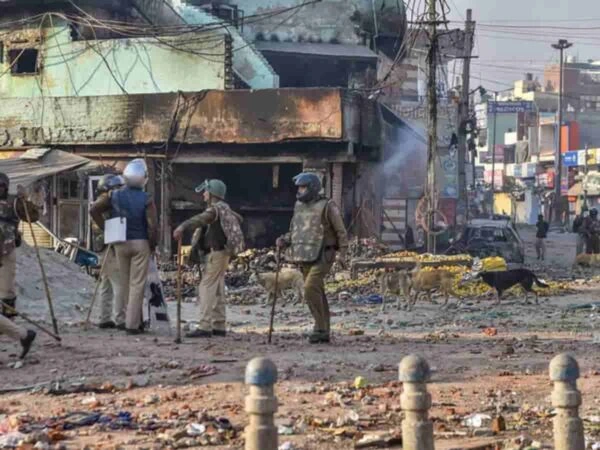A Delhi court has delivered a sharp rebuke to the Delhi Police over its handling of the investigation into the 2020 Delhi riots, expressing deep concern over what it described as major confusion and procedural lapses in the charge sheets.
The case,pertaining to the incidents of rioting and arson in Northeast Delhi during the communal violence of February 2020, came up before the Additional Sessions Judge (ASJ) Parveen Singh at the Karkardooma Court. The judge observed that the police failed to conduct a coherent investigation and had produced charge sheets that blurred the distinction between two rival mobs allegedly involved in the violence.
The court pointed out that despite giving the clear instructions in January 2025 to identify and separate the roles of the two mobs, the supplementary charge sheet submitted by the prosecution grouped both sides together. The court noted that this approach made it impossible for court to determine which group was responsible for the specific act of violence, looting, or property destruction.
As per the court, such ambiguity,undermines the credibility of the investigation and weakens the foundation of the prosecution’s case. The judge stated that the lack of clarity in identifying individual roles reflected a careless and unmethodical approach to an incident that had serious communal implications.
In addition to the structural flaws in the charge sheet, the Delhi court also highlighted several instances of non-compliance with its previous orders. It noted that certain complaints filed by victims identified as Azad, Zaid, and Sarla Devi had neither been properly investigated nor converted into separate FIRs, despite clear directions from the court to do so.
The judge questioned the prosecution’s subsequent decision to withdraw seven complaints and seek the discharge of two accused persons, suggesting that these actions might have been aimed at avoiding scrutiny of earlier judicial instructions.
The Court described the overall handling of the case as a “complete mess” and expressed disappointment that the prosecution had not taken its directions seriously. The judge said that such an approach not only delays justice but also erodes public confidence in the investigative process.
The failure to separate the acts of the two mobs, he added, raised questions about whether the police had a proper understanding of the events or were merely attempting to close the case without a fair investigation.
Given the seriousness of the lapses, the court has ordered that a copy of its observations be sent directly to the Delhi Police Commissioner. It has also directed that a detailed compliance report, signed either by the Commissioner or the Special Commissioner, be submitted by the next hearing scheduled for November 14.
The Court judge emphasised that the accountability must be fixed at appropriate levels to ensure that such confusion and negligence are not repeated in the future investigations.
The case remains a significant test of how effectively the Delhi Police can address judicial criticism and restore faith in its investigative processes. The court’s strong remarks serve as a reminder that in sensitive communal cases, procedural precision and impartial investigation are essential to uphold justice and maintain public trust.


